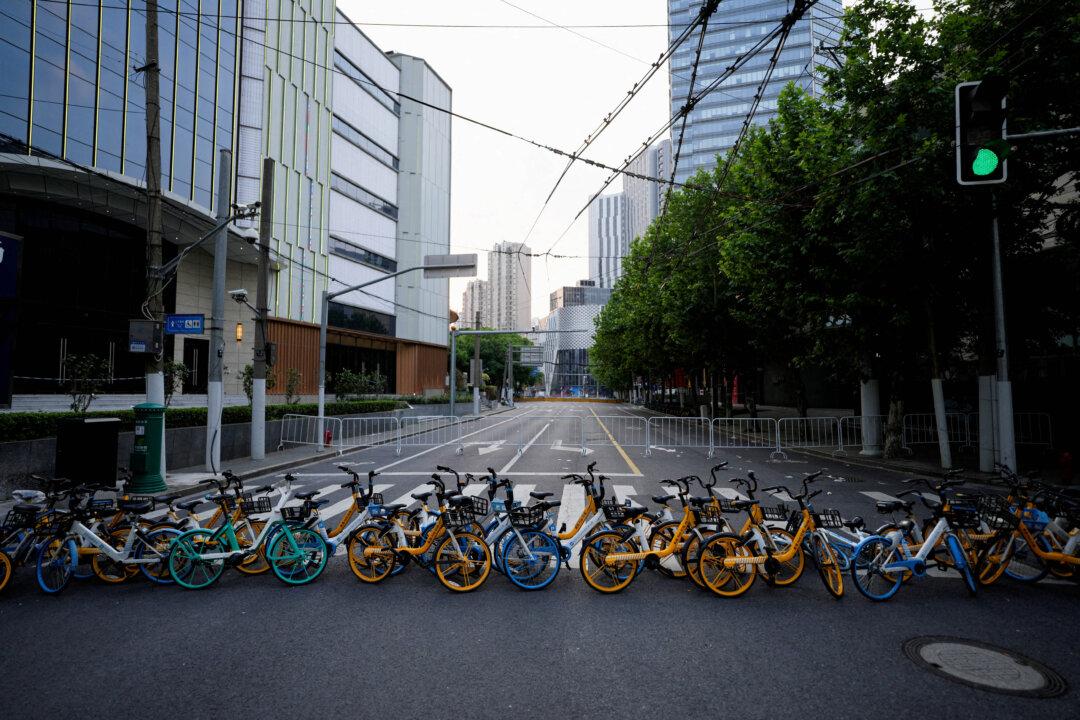After nearly 2 months of strict lockdown under the zero-COVID policy, Shanghai streets have a new look—camping tents. They belong to those who are temporarily on the streets due to the lockdown; many are delivery men who can’t return home.
Shanghai police won’t tolerate the unseemly image of the tents and their owners and are mistreating the delivery men who help keep local residents from starving.




